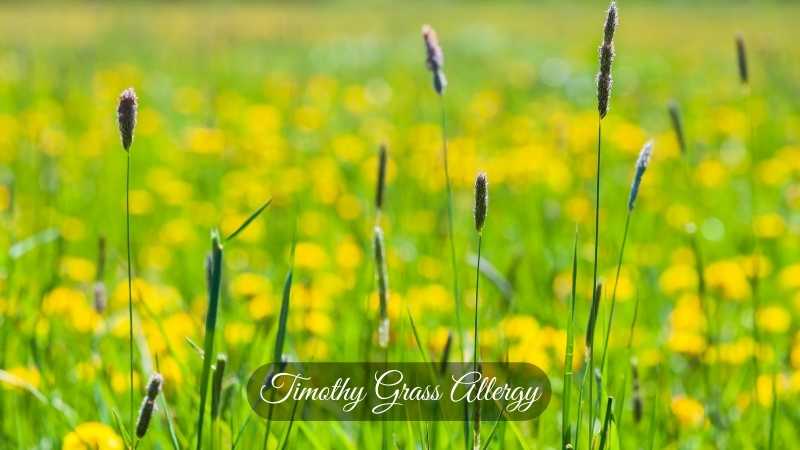
Timothy grass is one of the most common types of grass found nearly everywhere in the world, due to which Timothy Grass Allergy is also one of the prevalent allergens. Due to its easy availability and broad reach, this allergy is difficult to avoid, but once it affects a person, it can be treated. The pollen from the Timothy grass is a real problem, and it is generally more widespread in summer than in other seasons.
Timothy grass is from Asia, Europe, and North Africa but is now found everywhere. It primarily occurs in cool places and is more prevalent in humid areas. It is found nearly everywhere in America.
Causes and Symptoms of Timothy Grass Allergy
This nasal allergy causes tightness or chest pain, sneezing, runny nose, blocked nose, cold, and tearing. The primary allergy-causing agent for this allergy is airborne substances called pollen found in the flowers of Timothy. The protein in this pollen changes with the change in season; therefore, one might get this allergy anytime in the year. Pollens are so tiny that it is difficult to locate them, and they can be breathed easily without you knowing it. The contraction of this allergy primarily depends on the immune system; a person with a compassionate immune system could quickly get this allergy. It is essential to check oneself thoroughly for the type of protein responsible for the allergy. Timothy grass allergies lead to asthma and hay fever, the two most common nasal allergies.
Season and Location for Timothy Grass Allergy
Asia, Europe, and North Africa are the places where this grass originates, but it is now found everywhere in the United States, primarily in humid and cool areas. The flowers of Timothy grass grow during the summer season. The flower of the grass pollinates during the end of summer or the fall. The wind carries the pollens out of the flowers, which continue to be there till late fall when the allergy symptoms might peak. Hot and windy days are more dangerous for this allergy than cold days.
How to be Alert from Timothy Grass Allergy
This allergy is very active in the late fall but might vary from place to place. If you are going out for some outdoor activity, then it is wise to inquire in advance about the local pollen counts. Pollen count reports could be obtained from weather websites.
Prevention and Treatment of Timothy Grass Allergy
Due to the presence of the Timothy grass pollen in the air, it is challenging to avoid this altogether. Antihistamines are very effective in this condition and can be taken every day. However, if the problem is severe, it is always wise to see a doctor for further treatment and to know the advanced preventive measures.
Ways to Prevent and Manage Timothy Grass Allergies
- Steer Clear: Limit outdoor time during Timothy grass’s high-pollen seasons, particularly on breezy days.
- HEPA Filters: Install HEPA filters in your car and living spaces to capture pollen.
- Pollen Monitoring: Keep track of local pollen counts and take preventive measures when they are elevated.
- Change and Shower: After spending time outdoors, change your clothing and shower to remove pollen particles.
- Indoor Precautions: Close windows and use air purifiers to minimize indoor pollen.
Treatment Options for Timothy Grass Allergy
- OTC Antihistamines: Non-prescription antihistamines like Zyrtec, Allegra, or Claritin can mitigate symptoms like itching and a runny nose.
- Steroid Nasal Sprays: Products such as Flonase can alleviate nasal symptoms.
- Allergy Shots: A long-term treatment plan involving gradual exposure to small doses of the allergen can build resistance over time.
- Relief for Eyes: Antihistamine eye drops can relieve symptoms like itchy, watery eyes.
- See a Specialist: For chronic or severe allergies, a consultation with an allergist for specialized treatment may be necessary.
